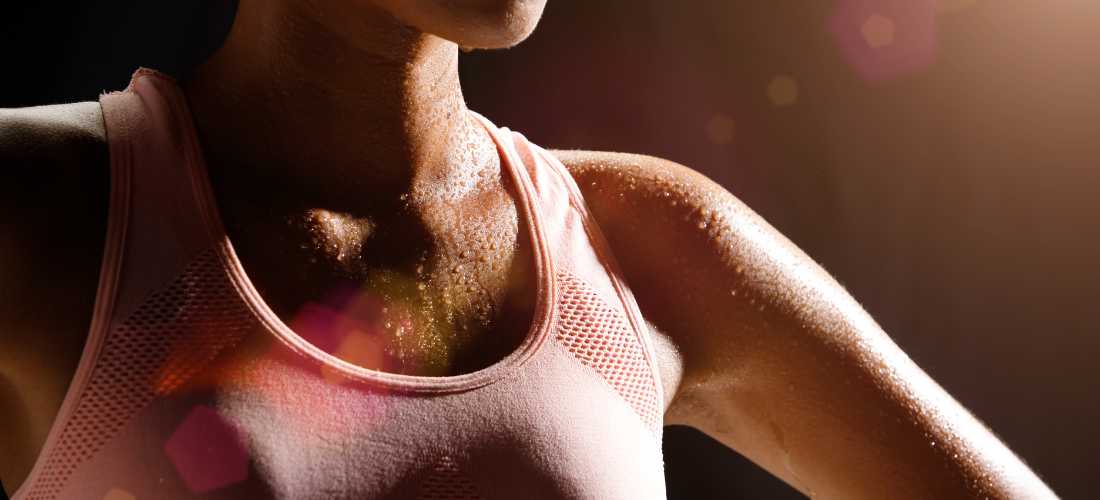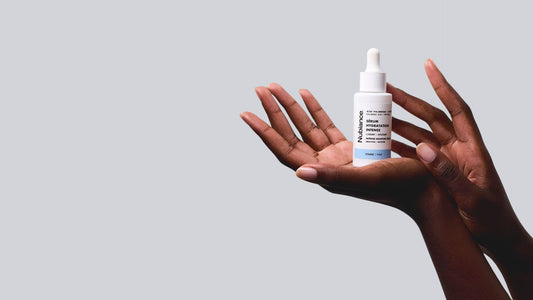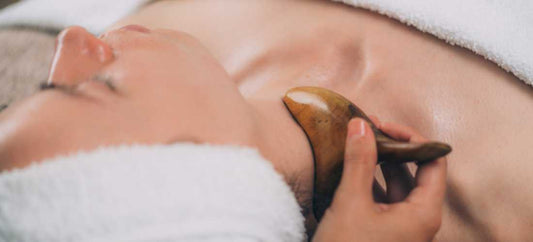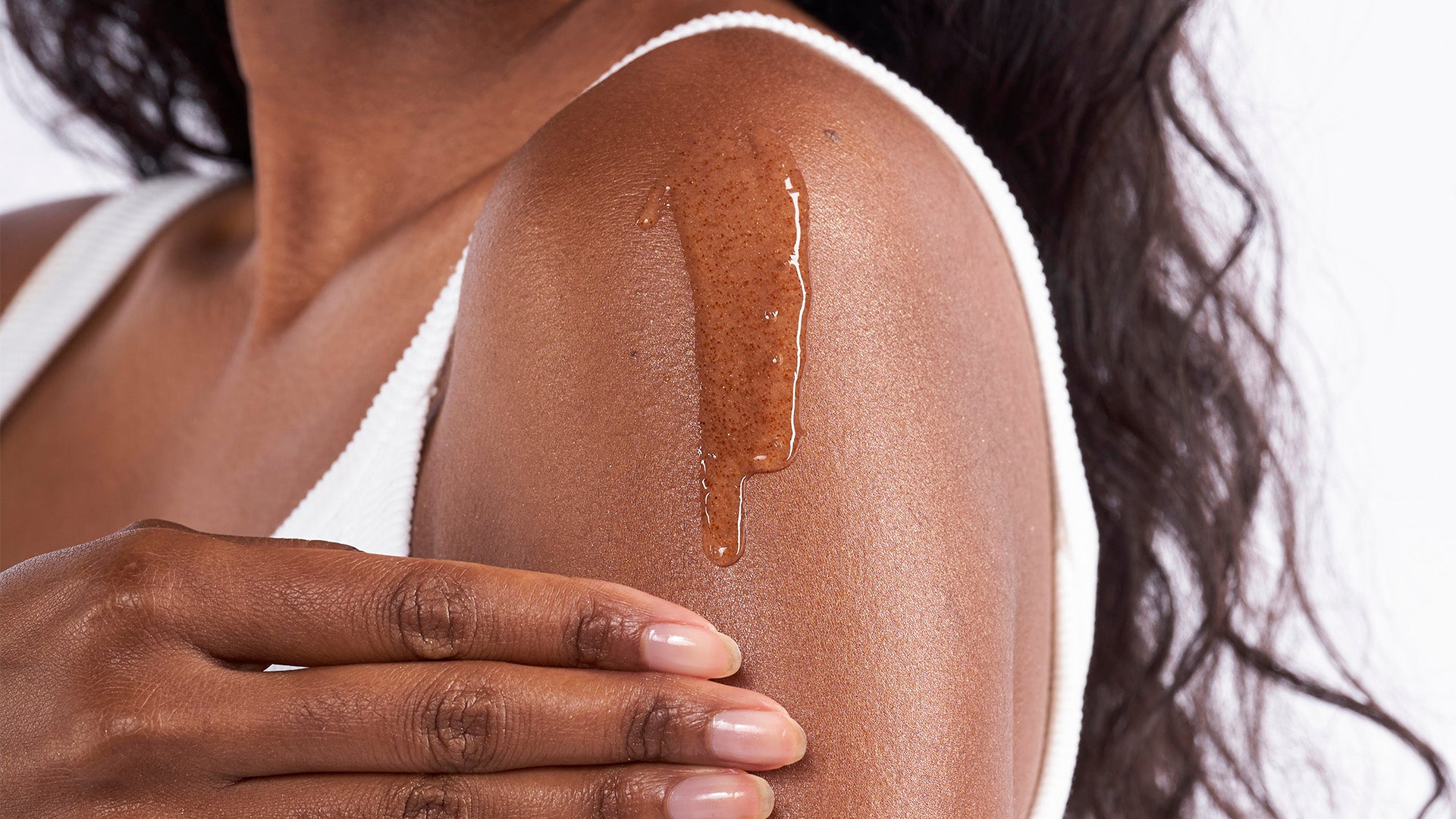
Excessive sweating: understanding its causes and effective solutions
Partager
If you suffer from excessive sweating or hot flashes , you may want to find the ideal solution against this phenomenon. Before going through the box of botulinum toxin injections , there are several natural remedies and simple daily antiperspirant gestures to limit the sweating of your body. Find out in this article to find dry armpits and soles of the feet.
What causes excessive sweating?
Primary hyperhidrosis
Primary hyperhidrosis, also called idiopathic, essential or emotional hyperhidrosis , is localized and mainly affects the armpits, face, hands and feet. Primary hyperhidrosis can be explained, among other things, by two phenomena:
-
Hyperfunction of the hypothalamus, the gland located in the brain that triggers the production of sweat.
-
The involvement of other neural circuits controlled by the anterior cingulate cortex, a region of the brain that plays an important role in controlling emotions and adapting to various situations.
Primary hyperhidrosis is most common in adolescents and young adults. In addition, cases of primary hyperhidrosis are often seen in several individuals in the same family, suggesting a role for heredity.
Primary excessive sweating is particularly evident in certain situations:
-
Stress and strong emotions: Fear or anxiety lead to a wave of sweating, especially in people who experience social embarrassment, blushing , heart palpitations. A vicious circle can then form, because excessive sweating is usually embarrassing and generates additional anxiety, which reinforces it.
-
Physical exertion, heat, sun: these are factors that aggravate excessive sweating.
-
Foods that promote sweating: caffeine, tea, cola, chocolate and spicy foods should be avoided.

Secondary hyperhidrosis
In some cases, excessive sweating is caused by a health problem or other specific reason. This is called secondary hyperhidrosis . Causes of secondary hyperhidrosis may include:
-
Obesity
-
Diabetes
-
Hypoglycemia
-
Thyroid gland dysfunction
-
Nervous system disorder
-
Menopause
-
Withdrawal syndromes
What are the symptoms of excessive sweating?
Sometimes the area of excessive sweating becomes red, inflamed, and foul-smelling ( bromhidrosis ), due to the chemical breakdown of sweat by bacteria and yeasts normally present on the skin . The affected area may become pale and appear wrinkled and cracked due to chronic high humidity. People with hyperhidrosis are often anxious about their condition, which can cause them to withdraw into themselves. This anxiety can make sweating worse.
Natural solutions to cure excess sweating
Against facial sweating
If you sweat excessively from your face, there are several natural and preventative methods:
-
Refresh it using a thermal water spray, floral water or hydrosol. You can also use a damp washcloth.
-
In your daily routine , choose gentle products that respect the skin's hydrolipidic film . Wash it with a superfatted soap, a green clay-based soap or a real Marseille soap. Avoid greasy creams. You can make a clay mask from time to time. Remember to dry it well after washing, not neglecting any area.
-
Drink water regularly to eliminate toxins through urine.
-
Avoid consuming spicy foods, garlic and onion.
-
Put some talcum powder on your face or rub an alum stone after moistening it with cold water.

Against hyperhidrosis of the feet
To reduce hyperhidrosis of the feet naturally, some solutions can be helpful, such as using absorbent powders, breathable shoes, socks made of natural fibers such as cotton or bamboo , and practicing relaxation and stress management techniques to reduce anxiety that can worsen sweating.
Against hyperhidrosis of the hands
To reduce hyperhidrosis of the palms of the hands naturally, solutions such as using talcum powder or absorbent powders , wearing absorbent cotton gloves at night, avoiding stress triggers and adopting relaxation techniques such as deep breathing and meditation can be beneficial. In addition, some plants with astringent properties such as sage can be used in infusion to reduce sweating .
What treatments are available for excessive sweating?
There are several treatments for excessive sweating. Initially, the use of antiperspirants , such as aluminum chloride , may be prescribed. These medications help to block the pores and sweat glands. Some of these products can also cause atrophy of the cells in question, which has the effect of reducing sweating.
Certain medications can be prescribed to reduce the activity of cholinergic fibers . These medications are generally very effective, but are not without side effects, which makes their use tricky.
In case of palmar or plantar hyperhidrosis, iontophoresis treatment may be considered. This is a technique in which the hands or feet are immersed in a tank of water with a slight electric current passing through it. Several sessions will be necessary.
Prevention and daily actions against excessive sweating
Here are a set of tips that can help you limit your sweating naturally:
-
Wear loose-fitting clothing made of natural fibers, such as linen, wool, or cotton, or wicking clothing. These materials easily absorb excess moisture . Avoid wearing clothing made of synthetic materials that retain sweat.
-
Keep your armpits shaved . Hair traps sweat, which can cause bad odors due to bacteria on the surface of the skin.
-
Drink sage herbal teas , this plant is known to regulate perspiration .
-
Drink enough water every day, at least 1.5 liters. Good hydration promotes the elimination of waste through urine rather than sweat glands .
-
Choose ventilated areas. In the car, at home, at work, leave a window open. The air current will help your sweat evaporate quickly.
If in doubt, consider going for a consultation for a clinical examination with a GP or dermatologist for your skin problems , because excessive sweating can have consequences in particular on your confidence.




